Our Library
Explore our publications, from research papers and series to educational materials, covering all aspects of conflict transformation and peace promotion.
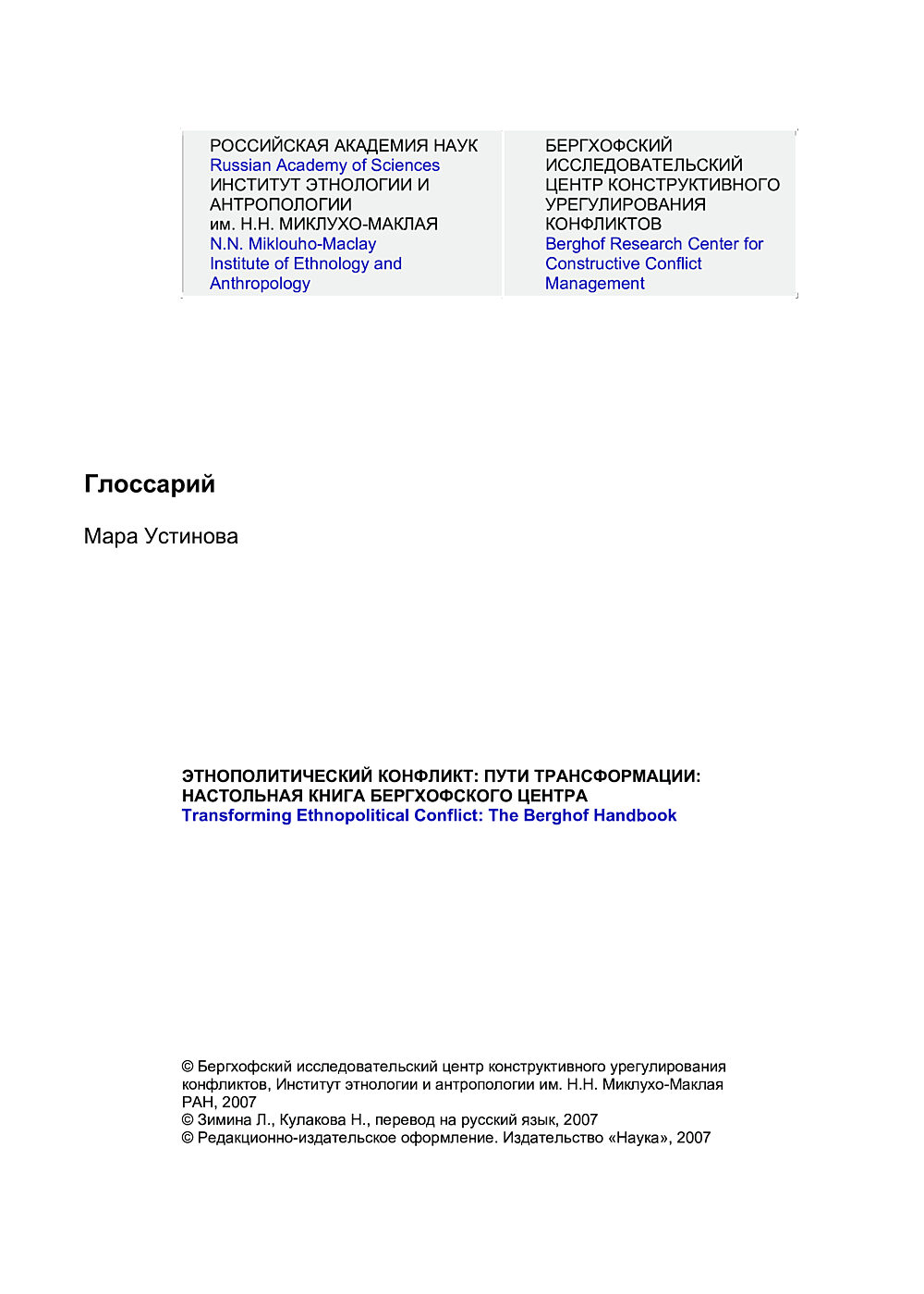
ГлоссарийHandbook Article
[Абстрактный машинный перевод] Авторы, занимающиеся изучением конфликтов, часто используют ключевые термины в произвольной и противоречивой форме, отражая реальность того, что концепции не были четко определены. Чтобы способствовать последовательному использованию этих терминов, для целей Руководства Бергхофа по трансформации конфликтов были приняты следующие определения. Тем не менее отдельные авторы иногда использовали некоторые термины особым образом по отношению к конкретному аргументу в своей главе. В этих обстоятельствах специальное использование термина ясно объяснено, в противном случае следующие определения являются общими в Справочнике.
- Year2007
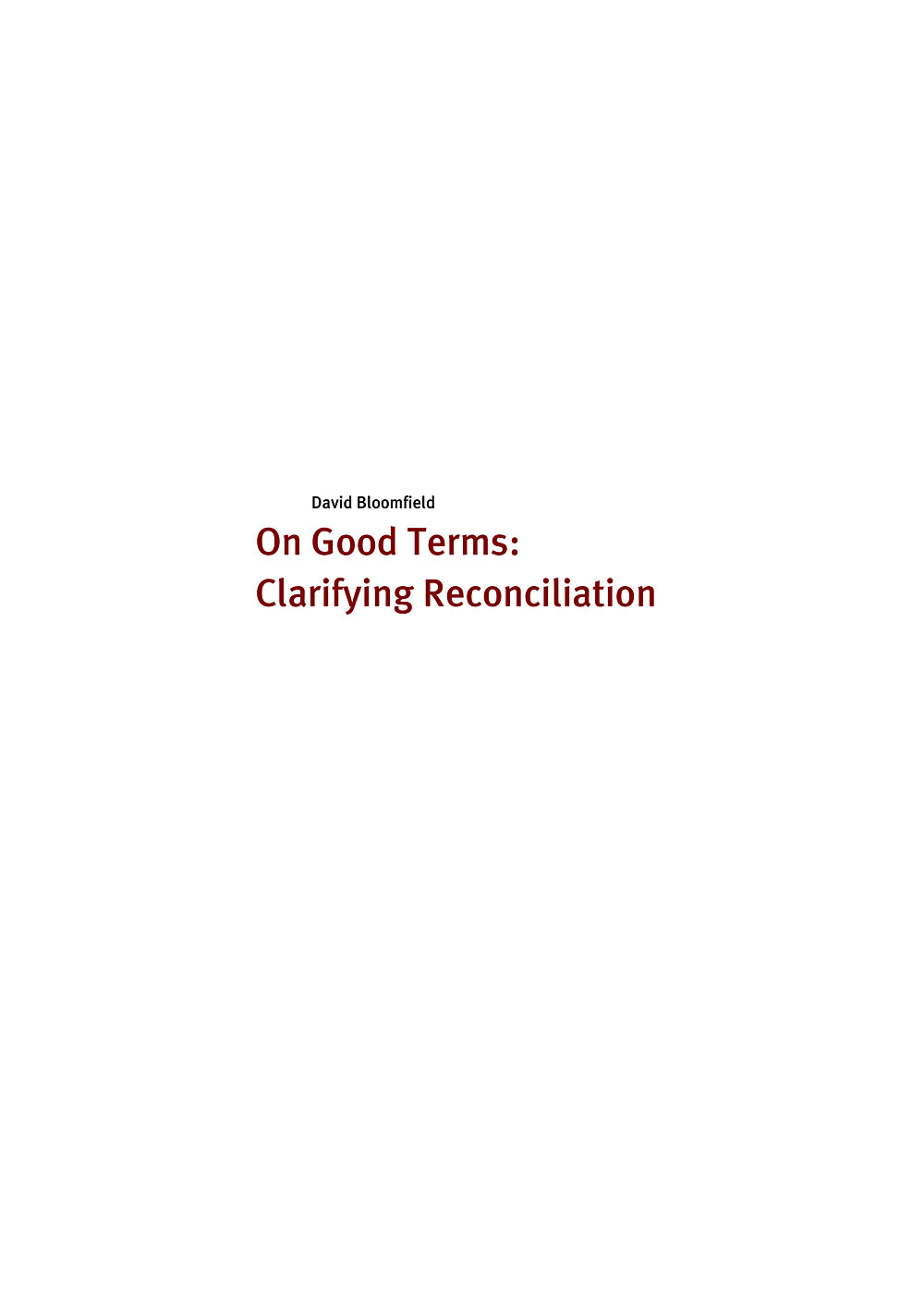
On Good TermsClarifying Reconciliation (Report No. 14)
My aim here is to address some of the deep confusion that still surrounds the term reconciliation, and its practice in post-violence peacebuilding. Despite its generally acknowledged importance, there remains great disagreement over what reconciliation actually means and, in particular, how it relates to other concepts and processes, such as justice, peacebuilding, democratisation and political development.
- Year2006
- Author(s)David Bloomfield
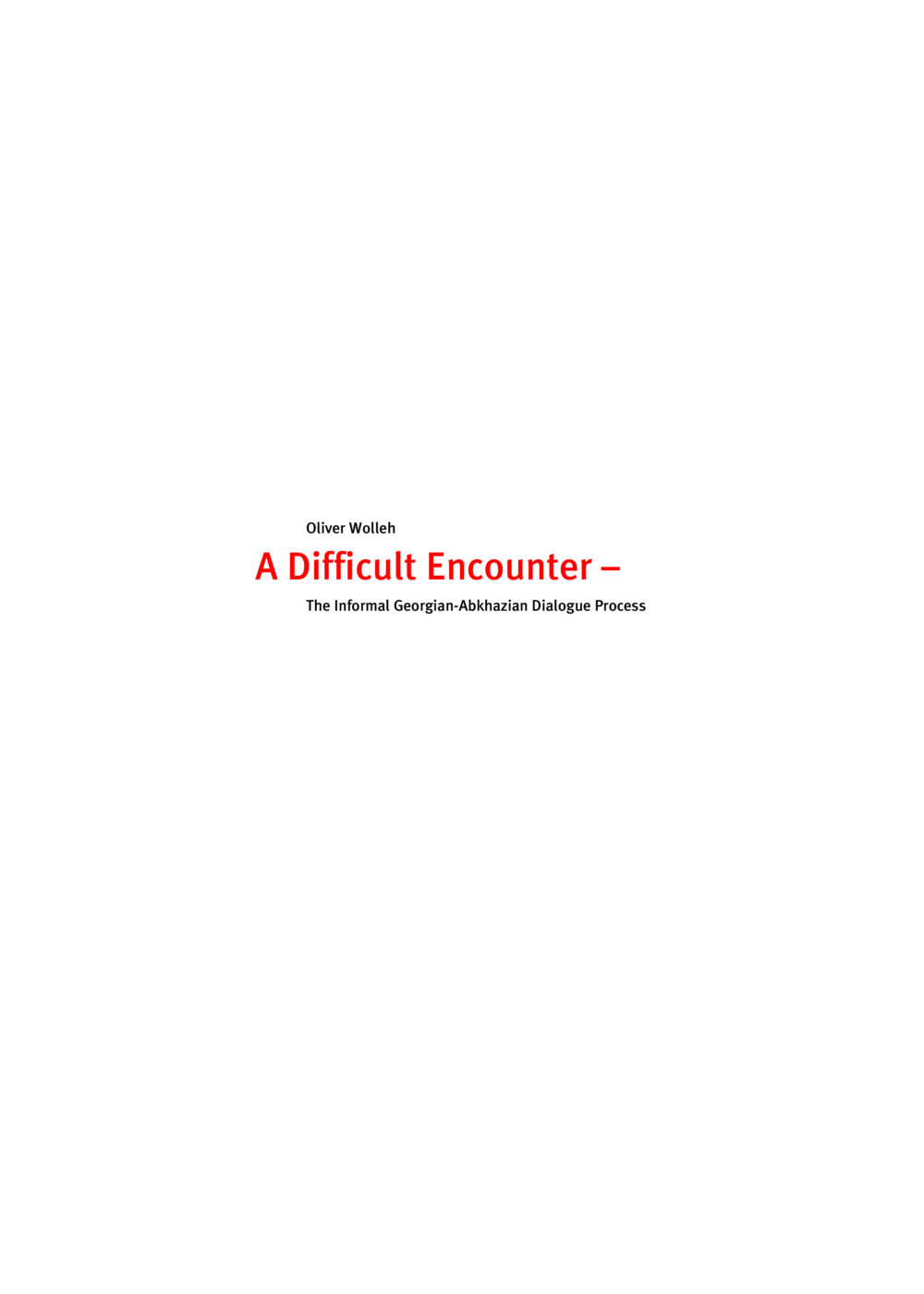
A difficult encounterThe informal Georgian-Abkhazian dialogue process
This report gives an overview of the Georgian–Abkhazian dialogue process. Oliver Wolleh analyses a series of workshops with representatives of both sides of the conflict that we co-orgnised together with Conciliation Resources.
- Year2006
- Author(s)Oliver Wolleh
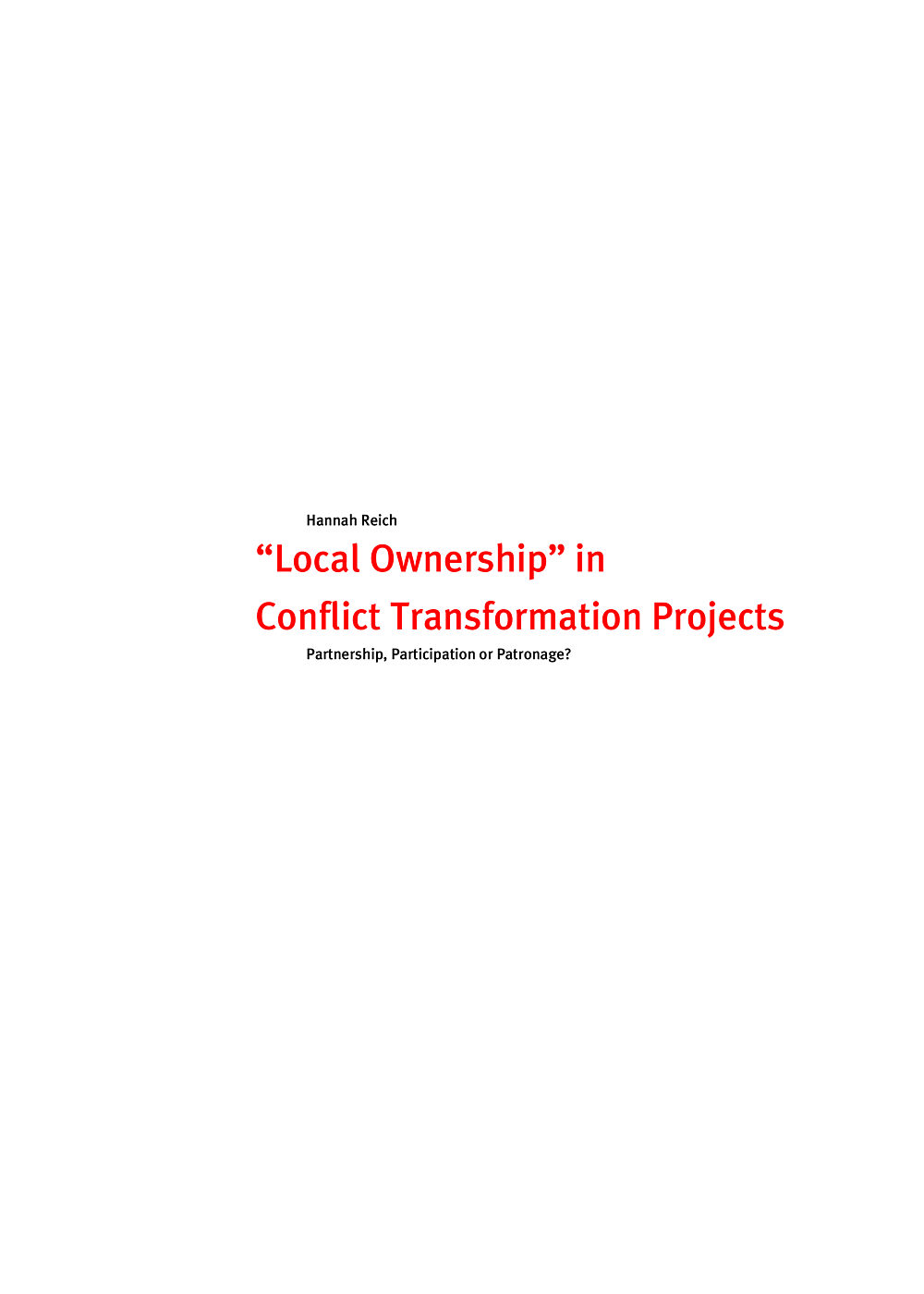
"Local Ownership" in Conflict Transformation ProjectsPartnership, Participation or Patronage?
The article argues that the demand for local ownership in externally funded conflict transformation projects is counterproductive, if it is seen as a concrete project objective. Nevertheless, the demand has an important function as policy ideal, pointing to the necessity for change in present international cooperation. Instead of aiming towards the impossible goal of literal “local ownership” of a foreign-funded project, which by definition inscribes the roles of donor and beneficiary, the focus should be on the nature of the relationship between the donors and the beneficiaries. It is within this relationship that power is or is not shared and that the equality of the partners may or may not be realised. The concept of "learning sites" can be used as a framework to counter asymmetrical relationships and develop a more equal partnership between “insiders” and “outsiders” in international peacebuilding work.
- Year2006
- Author(s)Hannah Reich
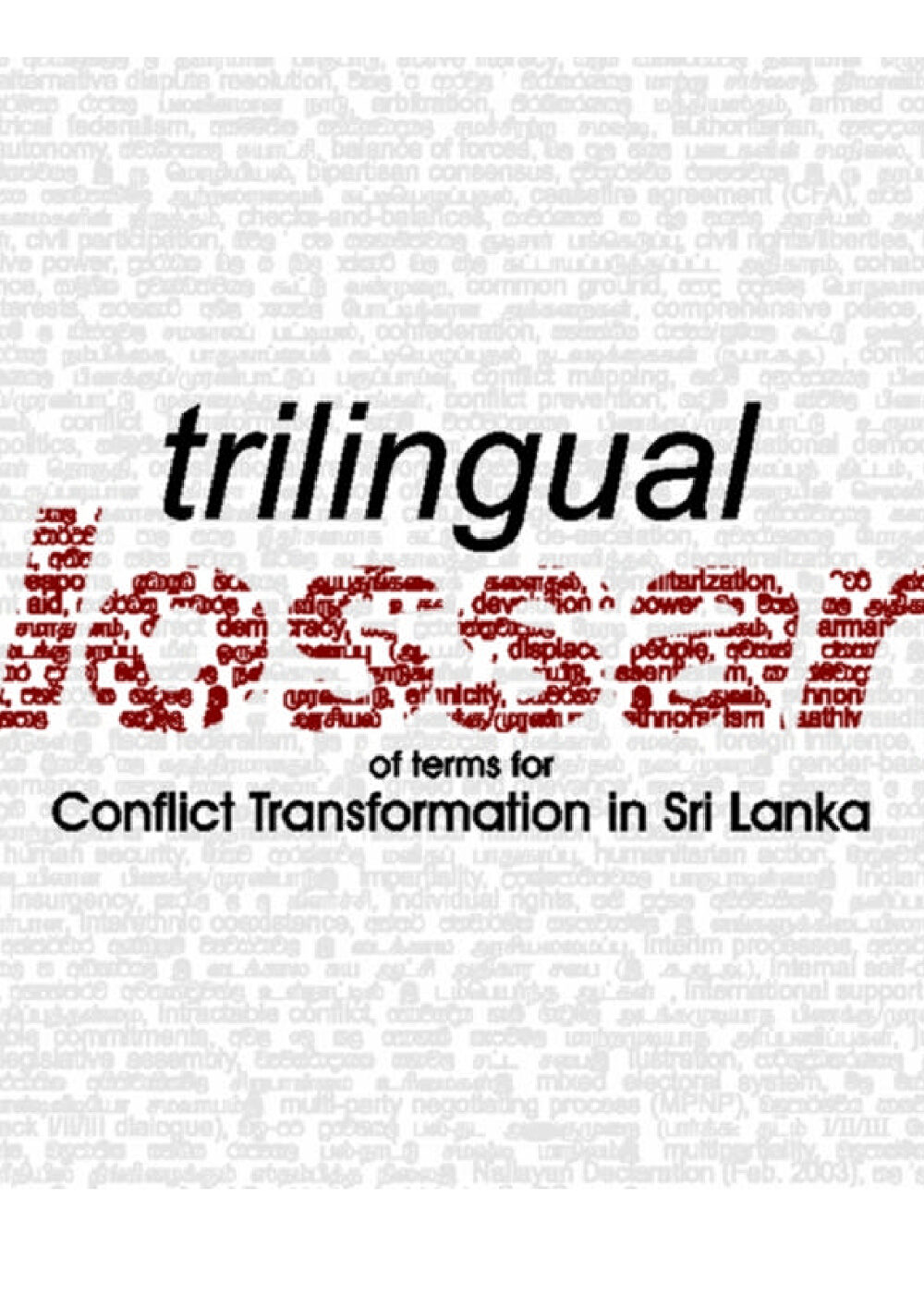
Trilingual Glossary of Terms for Conflict Transformation in Sri Lankaලංකාවේ ගැටුම් විපරිවර්තනය ත්රෛභාෂා පාරිභාෂික ශබ්ද කෝෂය / இலங்கையில் மோதுகை மாற்றுநிலையாக்கத்திற்கான அருஞ்சொற்பதங்கள்
Trilingual Glossary of terms for Conflict Transformation in Sri Lanka
ලංකාවේ ගැටුම් විපරිවර්තනය ත්රෛභාෂා පාරිභාෂික ශබ්ද කෝෂය
இலங்கையில் மோதுகை மாற்றுநிலையாக்கத்திற்கான அருஞ்சொற்பதங்கள்
- Year2006
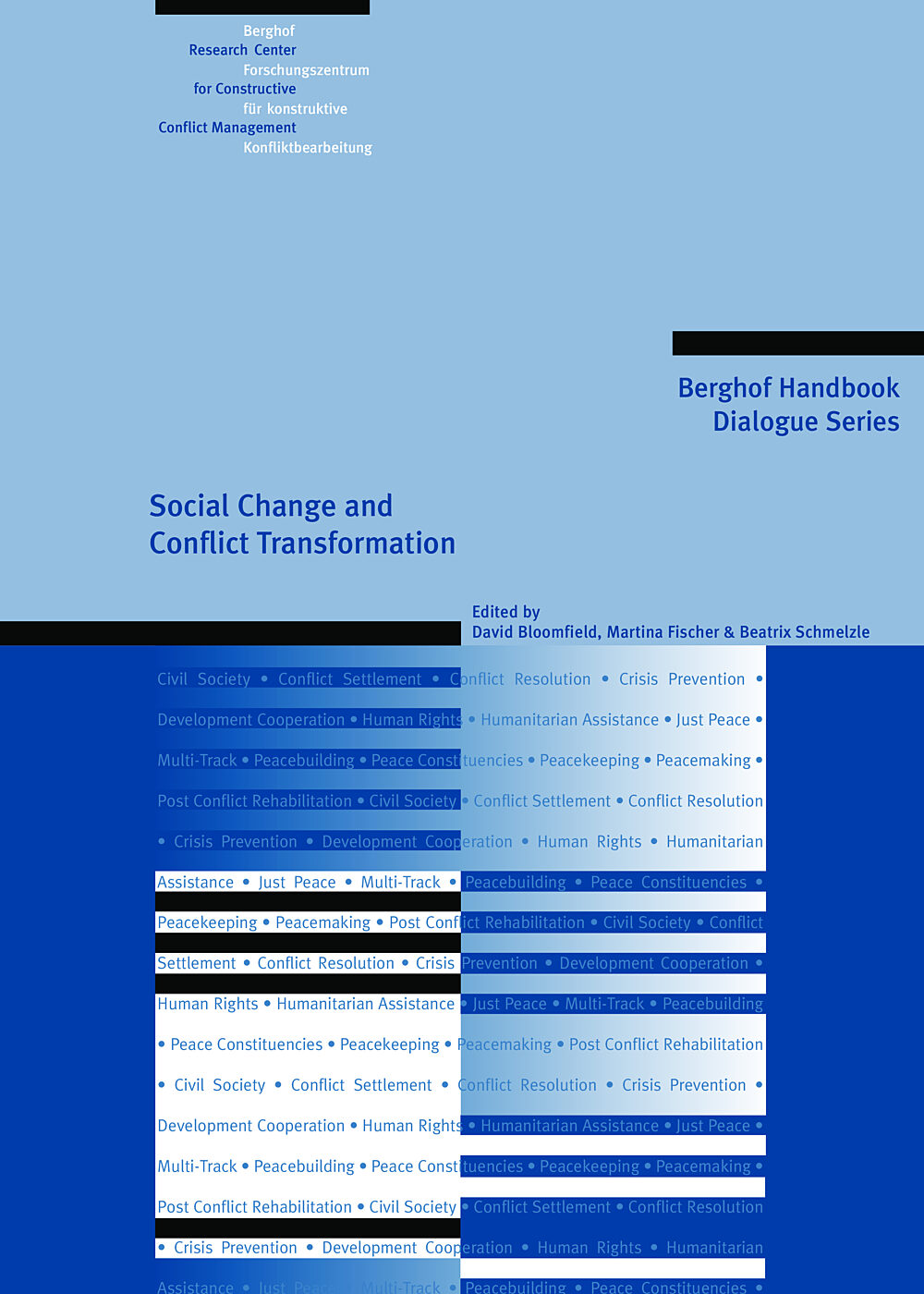
Social Change and Conflict TransformationHandbook Dialogue Series No. 5 - complete
In his lead article, Christopher Mitchell, Professor Emeritus of George Mason University’s Institute for Conflict Analysis and Resolution (ICAR), sets out a framework for thinking systematically about the relationship between conflict and (social) change. He considers necessary changes to bring about the resolution of conflict, as well as obstacles to such changes, and envisions possible roles for agents of change. Five authors have expanded on, and critically reviewed, this lead article: Ed Garcia (International Alert), Chris Spies (UNDP Guyana), Ilana Shapiro (University of Massachusetts), Vivienne Jabri (King's College London) and Daniela Körppen (Berghof Peace Support).
- Year2006
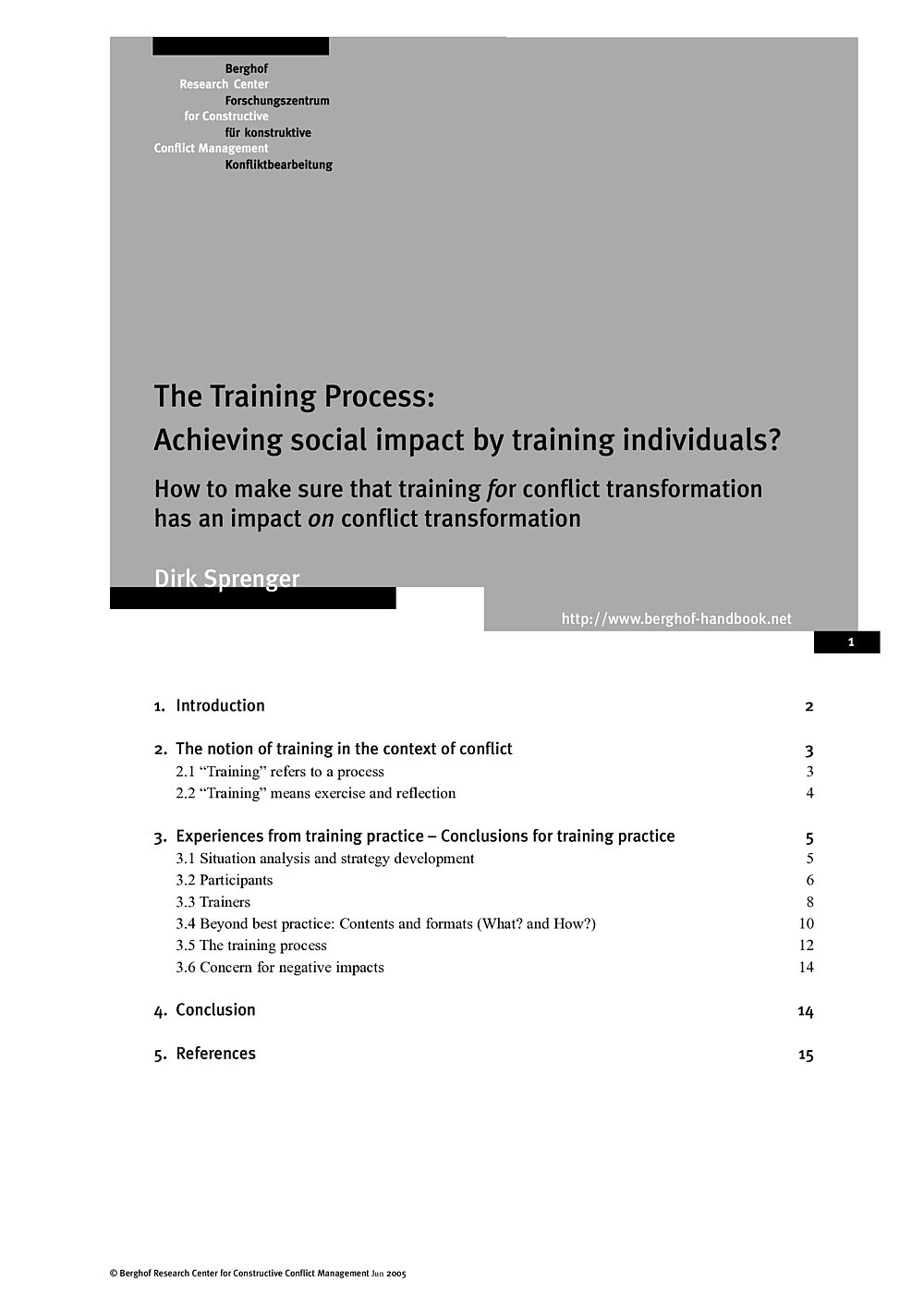
The Training Process: Achieving Social Impact by Training Individuals?Handbook Article
- Year2005
- Author(s)Dirk Sprenger
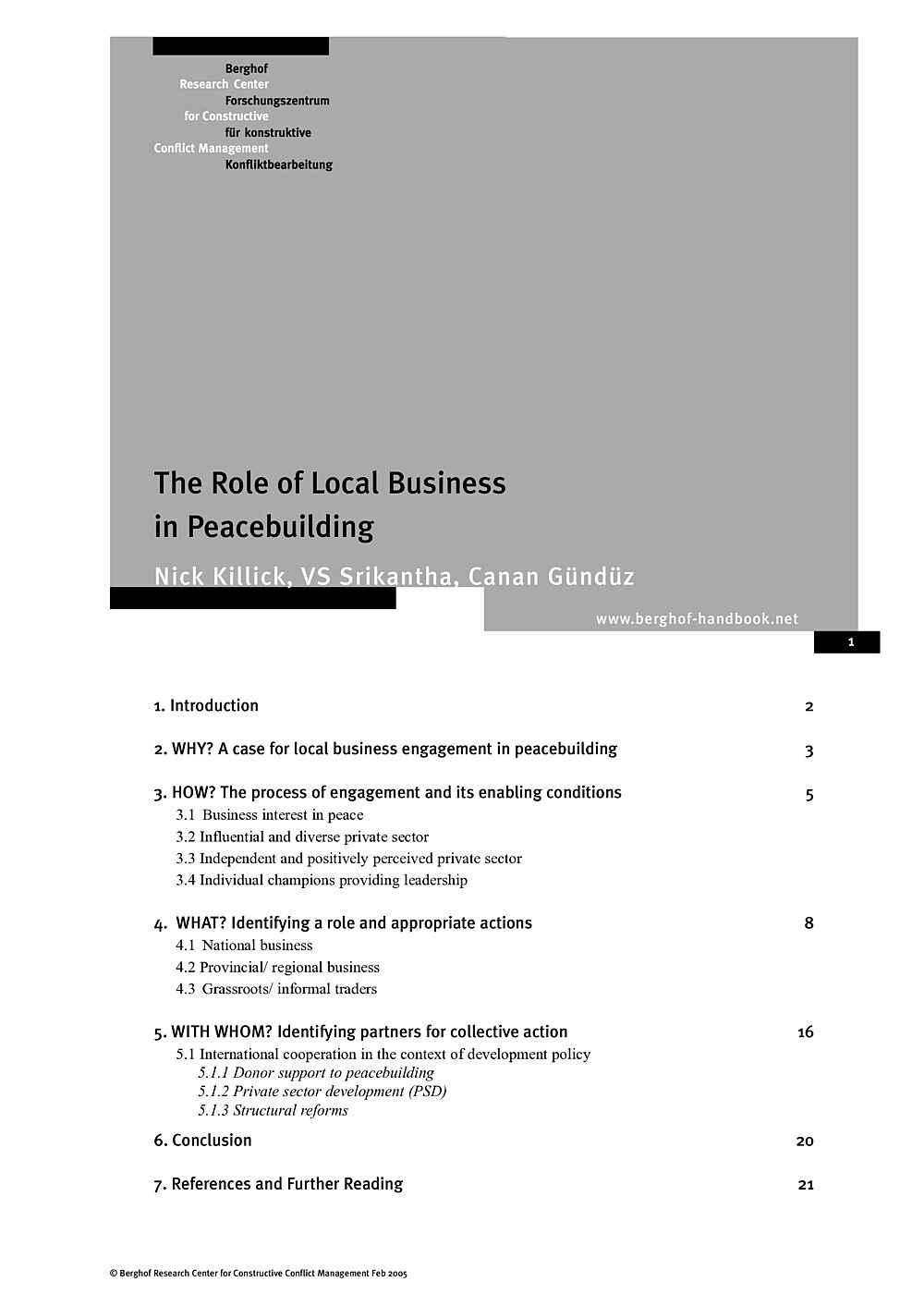
The Role of Local Business in PeacebuildingHandbook Article
- Year2005
- Author(s)Nick Killick, VS Sriantha, Canan Gunduz
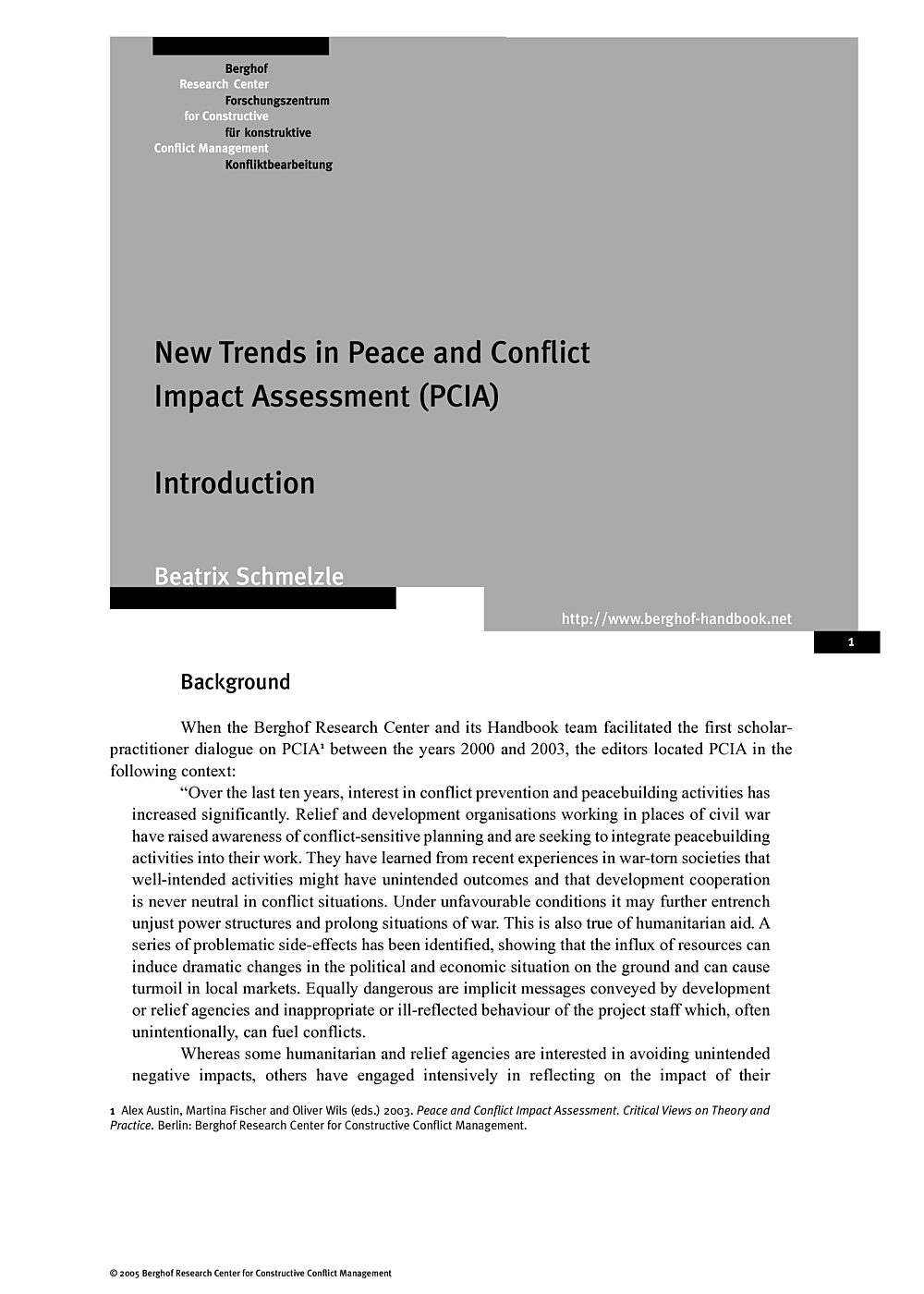
New Trends in PCIAHandbook Dialogue Series No. 4 - complete
Questions of effectiveness, impact and evaluation continue to be most relevant for the field of peacebuilding and conflict transformation: Adam Barbolet, Rachel Goldwyn, Hesta Groenewald & Andrew Sherriff report with intimate knowledge on the development of "conflict sensitivity" as an alternative to PCIA; Kenneth Bush sends thought-provoking "field notes", reflecting on his learning in the context of applying PCIA in the South; Thania Paffenholz presents a comprehensive overview of the "Aid for Peace Approach". Short reflection papers by all authors shed light on progress and controversy regarding the new trends in peace and conflict impact assessment.
- Year2005
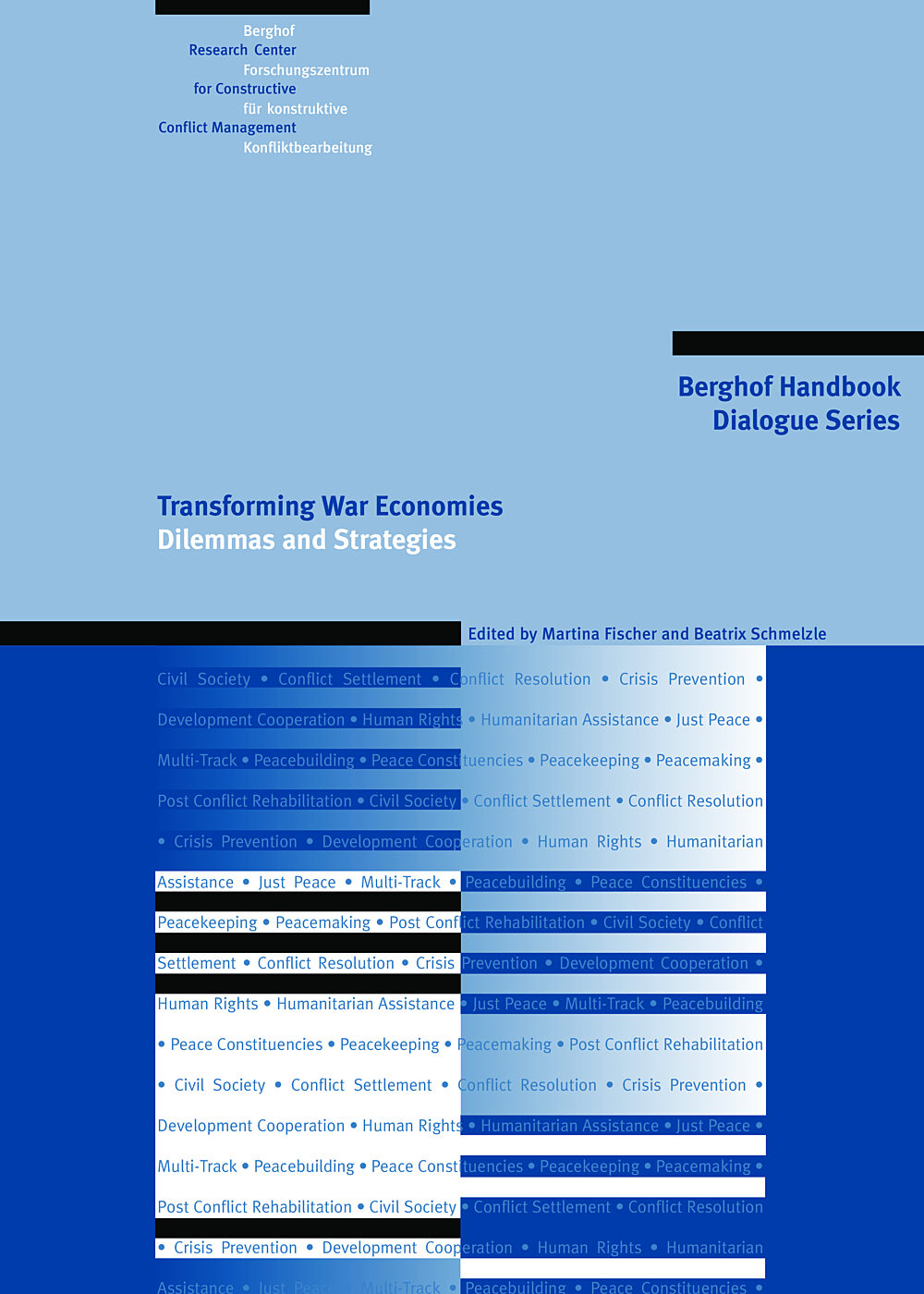
Transforming War Economies: Dilemmas and StrategiesHandbook Dialogue Series No. 3 - complete
This Dialogue sets out to assess the usefulness of current analytic approaches and policy recommendations in dealing constructively with war economies. Starting off with an overview of the state of the debate by Karen Ballentine and Heiko Nitzschke, respondents from a broad variety of backgrounds add their reflections, strategies and critique.
- Year2005